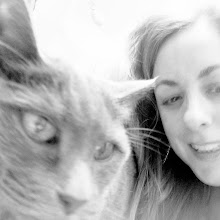 Various Artists, Broth-
Various Artists, Broth-ers on the Slide: The
Story of UK Funk, Dis-
cotheque/Sanctuary
To paraphrase the Pointer
Sisters, by way of Lee Dorsey,
"I know they can make it / I
know that they can / I know darn well / They can work it out." Yes! Everyone knows Britain digs the funk, but the Queen's citizens can dish it up, too. Or some
could between 1971-76, the years covered by this compilation.
Truth be told, I was unfamiliar with most of the acts on this 2005 release, other than the Equals (featuring Eddie "Electric Ave-
nue" Grant), Labi Siffre, Joe Cocker, and the Average White Band.
As for poet/activist Siffre—represented by the bass-heavy "Vul-
ture"—I hadn't heard of the man until a few years ago, but was
intrigued by what I read. Click here for more information about
1975's Remember My Song from whence "The Vulture" originates.
That leaves Cocker—not usually thought of as a funk mer-
chant—and the AWB—not usually thought of as a UK act. On
"Woman to Woman," Cocker alternates between an eerie fal-
setto and his more familiar blues-based croon. The results sug-
gest Mick Jagger on "Miss You." Not as successful, but pretty
good as stylistic experiments go. The AWB's "Person to Person,"
on the other hand, barely passes muster. Instrumentals, like
"Pick Up the Pieces," were the Scots' forté, and they should
have excised the generic lover man vocals from this demo.
 There's a fine line between funk and disco, and I pref-
There's a fine line between funk and disco, and I pref-er material that's heavier
on the bass (and drums) than
the brass (and strings). Carol Grimes's "Uphill Peace of
Mind," for instance, combines
Afro-Carribean rhythms with female backing vocals and
David Sanborn-style sax playing. The combination is almost
too slick. The saving grace: Grimes's gritty post-punk voice.
Kokomo's take on Bobby Womack's "I Can Understand It" al-
so makes use of backing vocals, but the tempo is slower and
the vocalist—possibly leader Tony O'Malley—has a more com-
mercial style. Same for Rita Wright's "Pillow Talk" ringer "Touch
Me, Take Me." The Chic guitar-playing on the latter works well,
but for the most part, when disco meets jazz—my interest flags.
The standouts are the groups that step up the pace and keep
their eyes focused on the dancefloor (as opposed to the bedroom).
Not that there isn't a time and place for Donna Summer's "Love to
Love You, Baby" or the Andrea True Connection's "More, More,
More." But that place isn't here. If a singer's gonna get sexed up
in the studio, they might as well go all the way. No half steppin'.
 Highlights include Cy-
Highlights include Cy-mande's Curtis Mayfield-
inspired title track, the
Equals's fast-paced "Funky
Like a Train" (Jeff Young re-
edit), Jabba's previously
unreleased James Brown
cover ("Super Bad"), Madeline
Bell's John Paul Jones-prod-
uced "Comin' Atcha," the Fela Kuti-esque selections from the Funkees ("Ole") and Matata ("Wanna Do My Thing"), Doris Troy's
Isaac Hayes-meets-Marvin Gaye jam "Stretchin' Out," and Black
Velvet's organ-dominated "African Velvet," which sounds like
Toots & the Maytals gettin' busy with trumpter Hugh Masekela.
That leaves Gonzalez's "No Way," Funky Bands Inc.'s "FBI," Lin-
da Lewis's reggae-fied "Sideway Shuffle," and Brian Auger & Ob-
livion Express's passable version of Gaye's "Inner City Blues."
So, it's a mixed bag—no one here is giving Funkadelic or the
Ohio Players a run for their money—but the songs that suc-
ceed encourage further inquiry into the musicians behind
them. After all, "The Vulture" inspired me to find out more
about Siffre. Given my druthers, though, I'd drop the soul
and the disco, and add more funk from folks like the Equals.
That said, it's nice to see so many women in the mix. They may
constitute a minority, but they're far from invisible. That isn't
the case with most other funk collections. Hats off to compiler
Bluey, who also provides the liner notes. Brothers on the Slide
concludes with an essay from Lloyd Bradley, "In the Clubs - UK
Soul: An Underground Affair," and information on all 14 acts.
Endnote: Things I learned from the tiny-typeface liner notes:
EPMD and De La Soul have sampled "Brothers on the Slide"
(Erick and Parrish also took on "Woman to Woman"), Grimes and
Jabba were "keen supporters" of Rock Against Racism, and Carl
"Kung Fu Fighting" Douglas sprung from Gonzalez (the band
would go on to back Stealer's Wheel, Slade, and Suzi Quatro).
Images from Aquarium Drunkard (click for two Equals mp3s),
the BBC (Carol Grimes), and The Funky 16 Corners (Cymande).

No comments:
Post a Comment